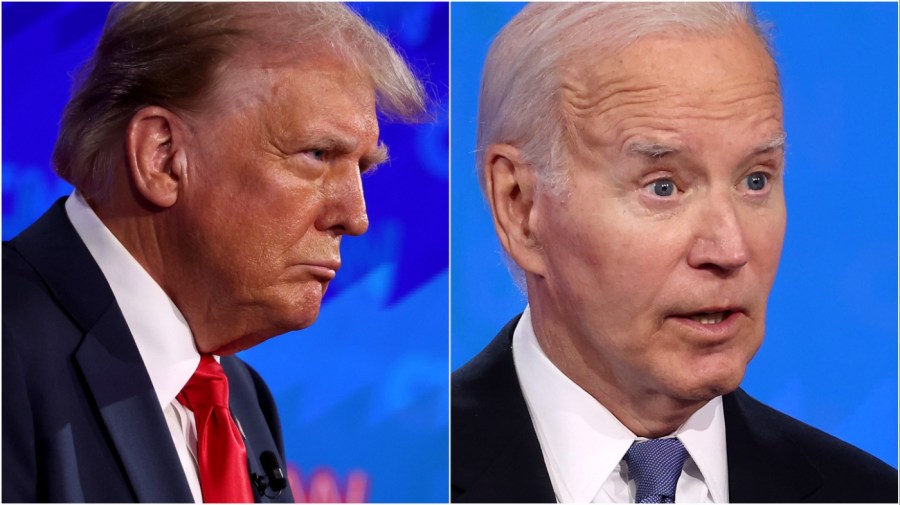
Now that President Biden has taken the bold step of pardoning his son, Hunter, there is only one thing left to do: Pardon Donald Trump.
To be clear, President-elect Trump does not need to be pardoned by Joe Biden. Nor does he need a hollow act of clemency for erstwhile actions deemed unlawful by others.
Trump has earned the clear support, vote and confidence of a majority of Americans. Now elected, there can be no federal action against him of any kind, as confirmed by the Department of Justice and the U.S. Supreme Court.
So, a pardon by Biden would have no legal consequence of import. There is no pragmatic advantage to be gained, no goodwill that can accrue from the bequest. There is no Democrat to inherit the benefits of such a gesture. And yet, it would speak volumes about America, if not Biden himself.
According to some presidential scholars, history will be kind to the Biden presidency. He is viewed as a consequential president who shepherded the nation through an epic global pandemic and shored up an economy on the brink of collapse. His contributions to America’s environment, infrastructure and social programs could endure (if not undone by the incoming administration).
Gaffes aside, Biden can stand on decades of selfless public service and status as a global statesman. However, personal decline and political duress drove his decision not to seek a second term, and to grudgingly endorse Vice President Kamala Harris for president. It was an important decision with an ill-fated outcome, to be sure, and one that will overshadow a legacy of simple decency, sound decisions and patriotic public service.
Undoubtedly, there is a constitutional basis for Biden’s pardoning of Trump. But the greater rationale rests on Biden’s deeply held faith as a Christian and his love of America — both of which call for forgiveness and healing. Which is why pardoning Trump would be in keeping with Biden’s obeisance to both.
The fact is, Joe Biden is a lame duck on his last leg, both literally and figuratively. And yet, Biden would stand no taller than if he defied partisanship to pardon his most bitter political rival.
If he chooses to pardon Trump, his decision must be purer than politics. It must transcend the political, social and cultural divides of today’s America. And, as Abraham Lincoln said in his first inaugural address, it must appeal to “the better angels of our nature.”
The American tradition of presidential pardons is deeply rooted in the belief that mercy can serve the greater good. In their wisdom, the Founding Fathers endowed the president with the power to grant clemency, not only for leniency but to heal a divided nation.
Jefferson Davis, president of the Confederacy, was pardoned by President Andrew Johnson in 1868 after leading the nation into a bloody civil war. Yet Johnson’s pardon of Davis brought reconciliation to a land deeply scarred by division.
Likewise, President Gerald Ford’s pardon of Richard Nixon in 1974 allowed the country to move on from the Watergate scandal. Ford understood that prosecuting Nixon would deepen the divide and distract the nation from more pressing challenges.
Donald Trump has been one of the most prosecuted figures in American history. And while he should not be compared to Jefferson Davis or Richard Nixon, Trump’s legal entanglements have cost America national trauma and millions of dollars. It has paralyzed the nation for the better part of four years, resulting in the most divided society in recent history.
We are a nation founded on Judeo-Christian values, encompassing a profound emphasis on the virtues of mercy, forgiveness and reconciliation. Alexander Hamilton, in Federalist No. 74, underscored the need for a president with the power to extend mercy, precisely because justice alone cannot always serve the highest purposes of government.
The Hebrew Bible and the New Testament alike speak to the necessity of tempering justice with compassion. The Book of Micah calls us “to do justice, to love kindness, and to walk humbly with your God.
Biden’s pardon of Trump would not be to benefit Trump. Nor would it benefit Biden. Pardoning Trump would be an act of national nobility that benefits us all. And even if symbolic, it would serve as a grave reminder that politics alone does not define the nation, at a time when the republic needs the overarching spirit of reconciliation.
If Biden believes in any of these principles, pardoning Trump would be an everlasting embrace of what makes America truly great.
Adonis Hoffman writes on business, law and policy. He served in senior roles in the U.S. House of Representatives and at the FCC.

